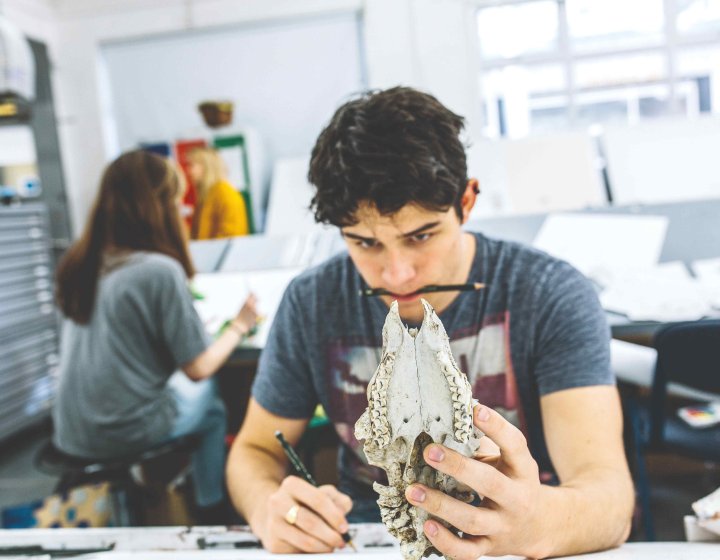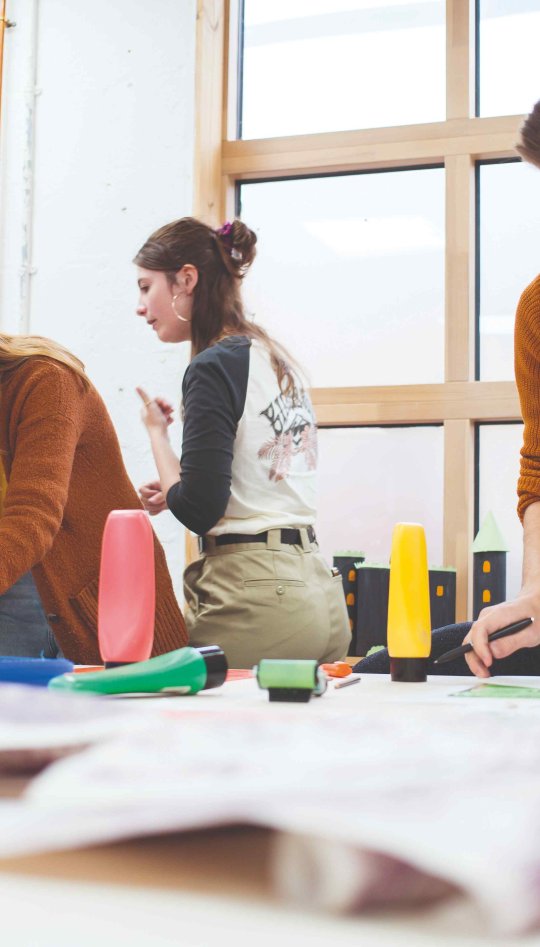
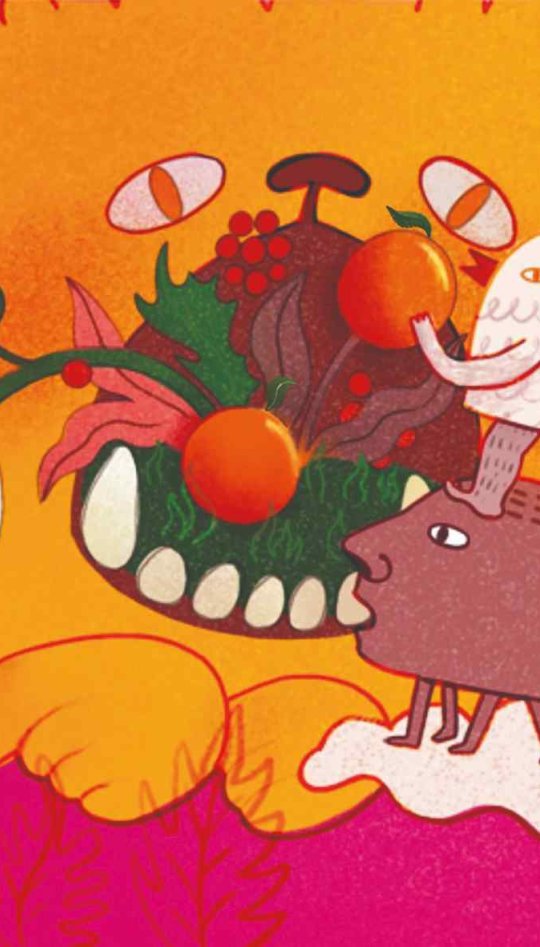
Illustration BA(Hons)
Follow in the footsteps of award-winning alumni on this renowned Illustration degree.
Course overview
Illustration is a powerful means of expressing ideas, eliciting emotion and sparking imagination. By enhancing your traditional craft skills and experimenting with new technologies, tools and techniques, you’ll develop your own unique visual language as you master the art of making images come to life.
On this Illustration degree, you’ll become an original, critical thinker, and adept visual problem solver. Through interactions with clients, art directors and designers, you’ll gain the skills needed to create a standout illustration portfolio and the professional experience required to succeed in your career.
You will:
- Be part of a thriving and immersive studio culture that embraces innovation, champions risk-taking and encourages creative collaboration
- Create your own digital portfolio and marketing campaign using digital platforms to reach global audiences
- Get your work seen by art directors, editors and designers around the world by engaging with a range of professional platforms
- Attend guest lectures from alumni and industry leaders that have previously included Dave McKean, Owen Davey, Harriett Lee Merrion and Edel Rodriguez
- Learn vital professional practice skills by working on engaging industry briefs
- Participate in our industry feedback week, gaining personalised portfolio feedback from agencies, publishers and design houses
- Explore illustration as a tool for positive change, in response to environmental, ethical and moral challenges
Course details
On this Illustration degree, you'll have the opportunity to gain a BA(Hons) degree over three years or study Illustration BA(Hons) with an Integrated Foundation Year and/or professional placement.
During your Illustration course, you’ll develop an authentic visual language by experimenting with a broad range of media and processes, as well as established and emerging technologies. You’ll learn to communicate conceptually using visual problem-solving strategies and techniques combined with ongoing reflective analysis and research.
You’ll also build strong project management and collaboration skills, learning to translate briefs and see a project through from ideation to research and development to final output. Further industry insights and experience will be gained through our programme of internationally renowned guest speakers.
In the first year of your Illustration degree, you’ll be supported to explore, question and disrupt new processes and practices. Through project briefs, workshops, collaborative projects, lectures and presentations, you’ll be introduced to a range of creative processes: from critical thinking to practical hands-on skills across different mediums. You also begin to engage with a wider industry context, connecting with art directors, publishers, designers, advertising agencies, illustration agencies and freelance illustrators.
Modules
Visual Problem Solving
You’ll explore a broad range of visual problem-solving strategies and develop analytical and project management skills through a series of practical projects and contextual lectures.
Practice & Purpose
Through a set of project briefs, you’ll investigate how illustration operates within the industry and how it communicates with audiences. You’ll also be encouraged to develop an informed practice, considering ethical and inclusive ideas.
Media & Methods
You’ll continue to develop a creative, imaginative and personal approach to your work while gaining awareness of the roles of media, mark making and process within industry.
Context & Audience
In this module, you’ll focus on the contexts of narrative illustration and deepen your understanding of how to communicate inclusively to a range of audiences.
Exciting briefs, workshops, lectures and presentations will introduce you to in-depth learning that includes a growing awareness of audience, refining practical skills, critical research, project management, history and theory and collaborative practice. Working both independently and in groups, you’ll also embrace challenging subjects and explore the environment around us to investigate how illustration can be used to inform and implement change.
As you progress through this stage of the Illustration degree, you’ll begin to develop your own self-initiated projects as well as a range of collaborations. As more industry facing experiences begin to be introduced through live briefs and lectures, you’ll be challenged to question convention, disrupt, innovate and maintain risk and courageous thinking throughout.
Modules
Refine & Apply
You'll experiment with a range of established and emerging technologies and undertake reflective and analytical research to refine your visual language.
You’ll also build on your visual communication skills through a broad range of illustrative contexts, platforms and applications.
Challenging Subjects
You’ll explore illustration as a vehicle for communicating change and developing tools for improving equality, diversity, inclusivity and sustainability.
Introduce & Negotiate
In this module, you’ll begin to develop your first independent negotiated practice project, through which you’ll relate to key contexts in contemporary illustration practice to enable you to test both conceptual and visual language skills gained in the early phase of the course. The diagnostic nature of the module will enable you to make decisions about the future direction that your work takes.
Collaboration
This module focuses on a range of collaboration skills, allowing you to develop and utilise them through working as part of a collaborative team both outside and inside your disciplinary studies.
You can choose to take an optional professional placement after your second year on a three-year programme, or after your third year if you’re studying for a degree with an Integrated Foundation Year.
You’ll be responsible for finding your own placement, with support from the Employability team.
Choosing this option will enhance your industry experience and skills while studying.
How you’ll study during your placement year
You’ll spend time working in a professional context, as part of a business or organisation. This can be in one role, or up to three, and must be for a minimum of 24 weeks.
You’ll develop in-demand workplace skills, deepen your insight into industry and grow your network of contacts, all of which could help you get ahead in your career after graduation.
Throughout this year, you’ll develop a portfolio of work that includes critical self-reflection on what has been learned from the experience. You’ll be required to evidence your experiences, the skills you’ve learned and your professional growth.
The final year allows you to refine your approach and to test and challenge your emerging fields of interest, culminating in a final digital portfolio of work and an industry feedback contextual report.
The modules are designed to help you define your creative future beyond the Illustration course. You’ll continue to build core skills while reflecting critically on your strengths and exploring alternative models of practice.
Modules
Define & Realise
Through ongoing visual and intellectual experimentation and a process of critical analysis, you’ll work towards the development of an authentic visual language.
Research & Extend
You’ll engage with an extended programme of independent research on a subject that supports your illustration practice. You’ll then produce a written report.
Connect & Transition
In this module, you’ll develop your Final Major Project. This is an independent body of work, utilising appropriate processes defined by your strengths and interests within the field of illustration.
You’ll demonstrate your intellectual, technical and self-reflective skills while showcasing an emerging authentic visual language that connects and communicates with industry.
Professional Practice
This module is designed to equip you with the necessary skills to operate within your chosen career path. You’ll gain insights into the breadth of the creative industries and a deeper knowledge of professional practice.
Why study an Integrated Foundation Year route?
If you’re taking on a new subject that you haven’t studied in depth before, have been out of education for a while or have a non-standard educational background then an Integrated Foundation Year degree may be the right choice for you. It is a four-year degree with an Integrated Foundation Year to start, which allows you to explore the primary elements of your subject before progressing on to the remaining three years of the BA(Hons) degree.
What you'll study in your Foundation year
If you choose this pathway, you'll study five core modules in your Foundation year. These are all designed to help you explore the foundational elements of your subject. You'll gain relevant technical skills, learn to experiment and take risks, develop an understanding of professional practice, have opportunities to work across disciplines and collaborate with other students on live project briefs.
Modules
Explore
You'll begin your foundation year by working collaboratively with others to explore themes of the future. You'll take risks, experiment through play and be supported to break through barriers.
Technique
You'll take subject-specific workshops and develop essential technical and practical skills in your area of study. You'll also enhance your analytical and organisational abilities.
Apply
You'll work with your peer group to think beyond discipline by addressing a societal or global issue. You'll then showcase your work to your peers and deliver and accompanying evaluation of your process.
Industry
You'll enhance your creative and practical skills in your subject specialism by responding to typical industry briefs, underpinned by focused research and experiments. You'll also gain industry insights through guest lectures and workshops.
Launch
You'll develop your unique identity in your specialism through the production of a self-initiated body of work. Your final project will be the bridge to your next year, fully supported by evaluative reviews and critical analysis of the work you have created.
After the Foundation year, you progress into Year One of the full three-year degree, equipped with a deeper knowledge of your subject, a clear understanding of your strengths, and develop a practical and technical skillset and the confidence to excel in your chosen subject.
If you apply for and enrol onto a degree with an Integrated Foundation Year, you’ll have the option to switch onto a five-year version including a placement year. That means you’ll complete the first three years of your course before completing a placement in industry in your fourth year and returning to Falmouth for the fifth year of your programme.
The Integrated Foundation Year pathway for this course is subject to validation.
As part of our process of continuous improvement, we routinely review course content to ensure that all our students benefit from a high-quality and rewarding academic experience. As such, there may be some changes made to your course which are not immediately reflected in the content displayed on our website. During your course, module content may be updated or optional modules withdrawn in order to maintain the best academic experience. Any students affected will be informed of any changes directly.
From module information to course aims and assessment criteria, discover the full course details:
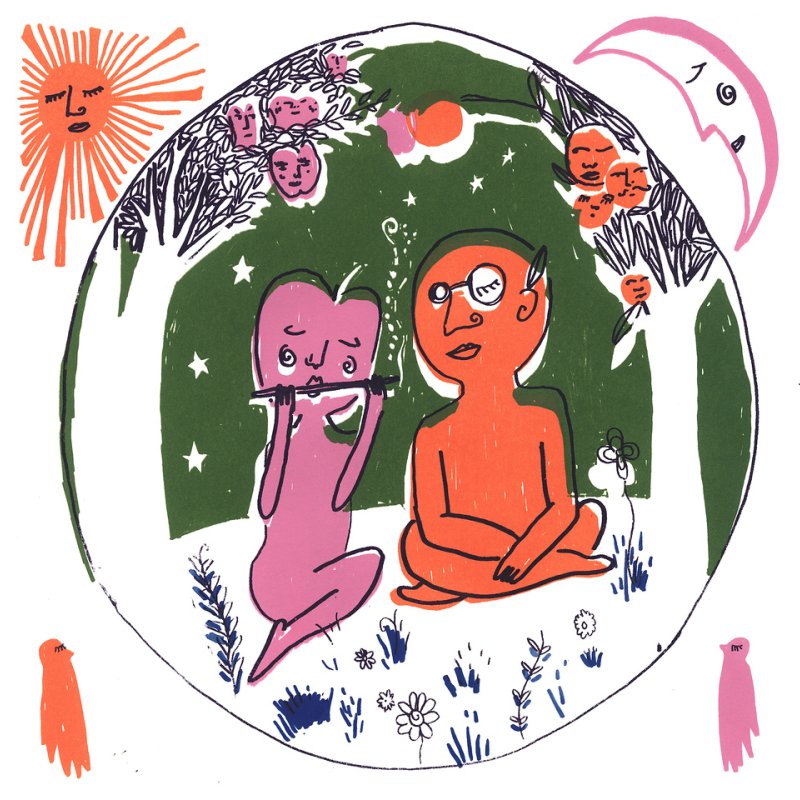
Student work by: Betty Everett
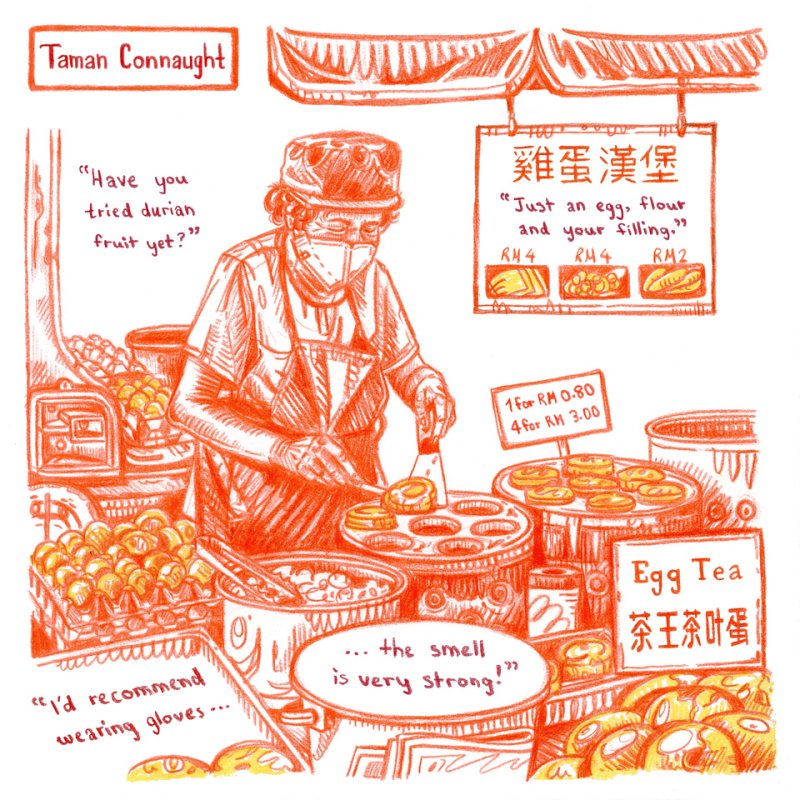
Student work by: Alice Mawdsley
How you’ll learn & be assessed
This Illustration degree balances creativity with professional practice. You'll gain hands-on knowledge and experience through project work, live briefs and client meetings. Supporting this will be lectures, seminars, group crits, workshops, one-to-one tutorials and optional placements or industry visits.
Our visiting speaker series has seen our students learn from Dave McKean, Noma Bar, Laura Carlin, Sam Arthur(Nobrow), Sue Coe, Paul Slater, Sara Fanelli, Russell Cobb, Graham Rawle, Matthew Richardson, Posy Simmonds, Jason Ford, Kai & Sunny, Owen Davey, Harriet Lee Merrion, Vivian Schwarz, Olivier Kugler and John Vernon Lord.
At Falmouth, we use a 'digitally enhanced learning & teaching' approach. Your experience will always be predominantly in-person, including seminars, tutorials and studio teaching, with some, more targeted elements, being online either live (synchronous) or pre-recorded (asynchronous). You can read more here.
100% of your assessment will be coursework.
Assessment methods
Assessment will take place at the end of each semester, and you'll get feedback and evaluation throughout the year. You'll be assessed through visual, verbal and written assignments, including your portfolio, as well as a research proposal.
If you choose the Integrated Foundation Year pathway for this course, all assessments within your foundation year will be 100% coursework based.
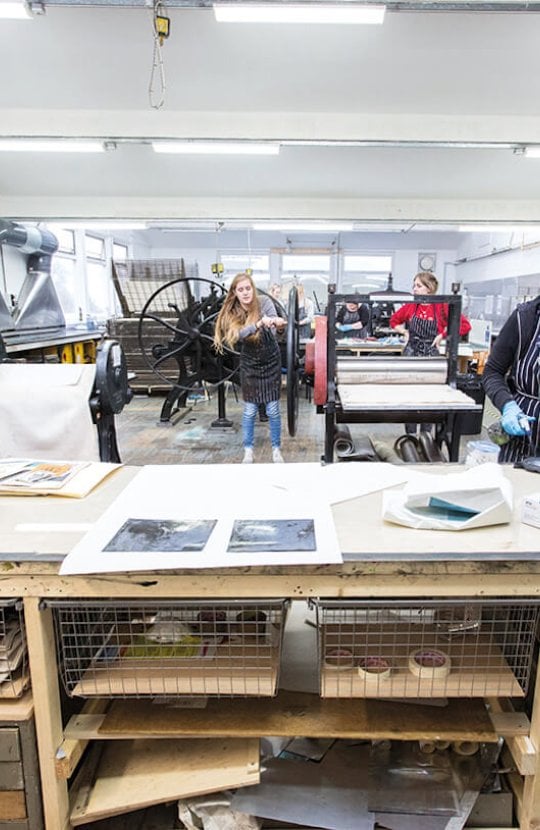
Virtual tour
Discover where you’ll spend your time as a student with our 360° tour, showcasing our facilities, accommodation, town and scenery.
Facilities
- Dedicated open plan studios and seminar rooms
- Printmaking workshop
- Life drawing studio
- Range of IT facilities with full software and printing facilities
- Access to over 140,000 books, comprehensive electronic journal resource and DVD library featuring over 17,000 titles
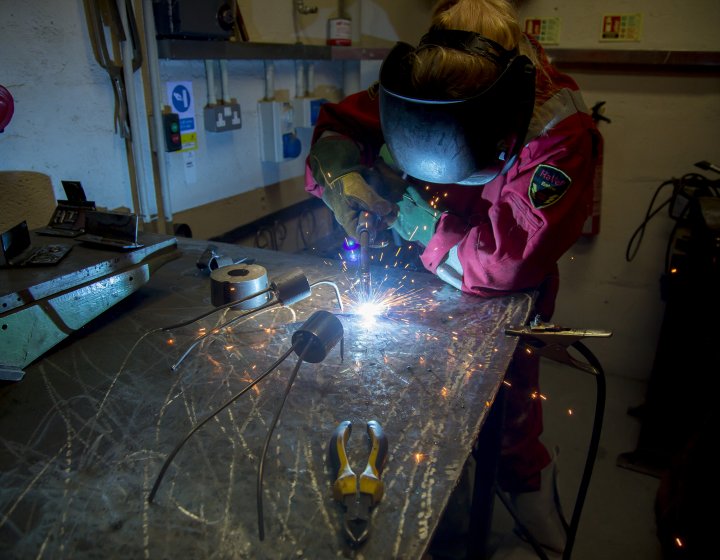
Art & Design Facilities
Primarily located at the Falmouth Campus in a subtropical garden, our studios and workshop facilitie...
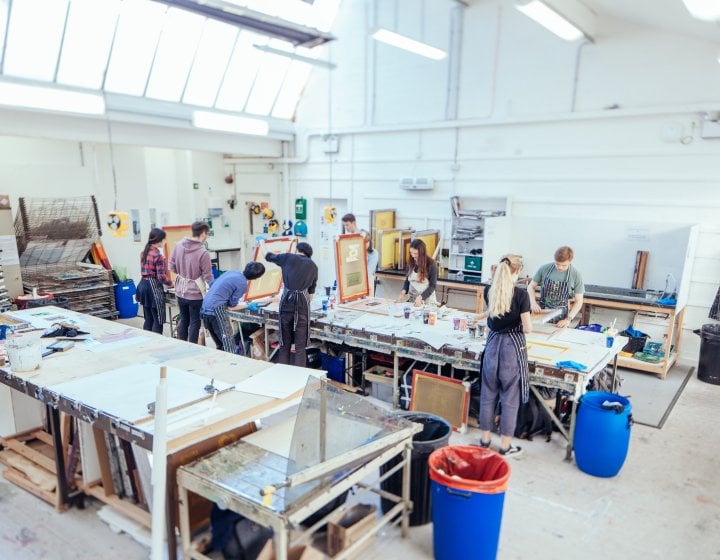
Printmaking Facilities
We facilitate a range of printmaking techniques and encourage both traditional and non-traditional p...
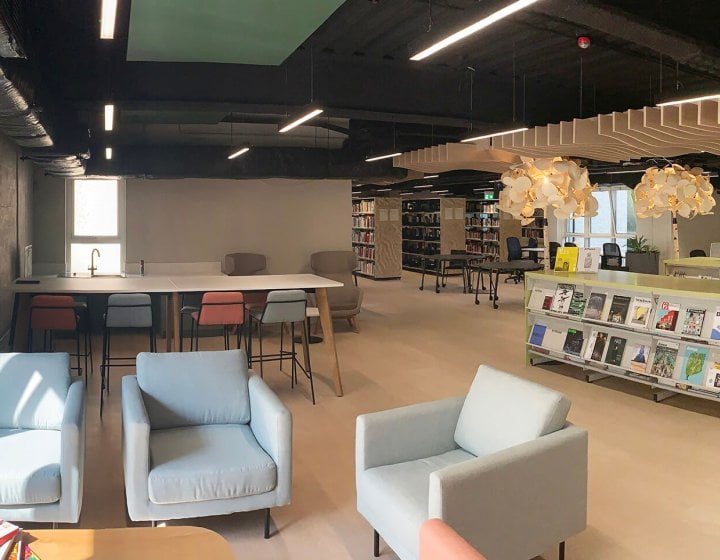
Library Facilities
Offering extensive collections, our two libraries provide a wealth of digital resources, magazines, ...

Sports Centre
Our Sports Centre, on Penryn Campus, includes a spacious gym with up to 90 of the latest, new statio...
Staff
Our teaching staff are practising illustrators with experience working for the likes of the Wall Street Journal, the Lancet Medical Journal, United Airlines and Varoom. They’re often key in helping our students find industry connections and opportunities.
Some members of staff only teach on specific modules, and your course might not feature every staff member who teaches on the course.

Nicholas Mott
Senior Lecturer
Nick Mott is an illustrator, artist and musician; being a co-founder of the underground, experimenta...
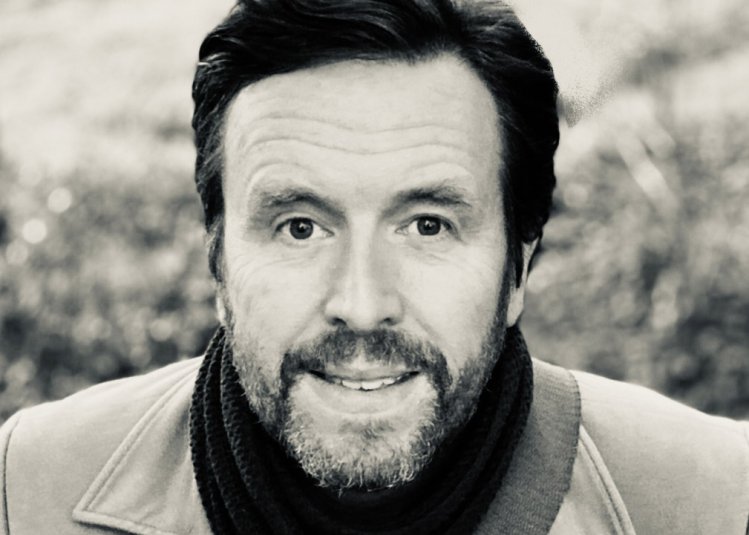
Nigel Owen
Course Leader, Illustration BA(Hons)
Having performed the roles of both Head of Illustration and also Course Leader since 2011, I decid...
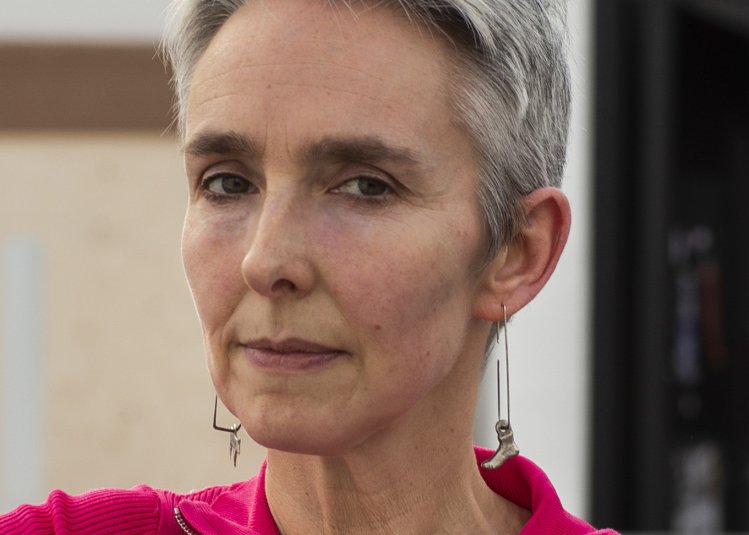
Sue Clarke
Senior Lecturer, Illustration
Sue Clarke has been an academic and illustrator for over 30 years; she graduated from Central Saint ...
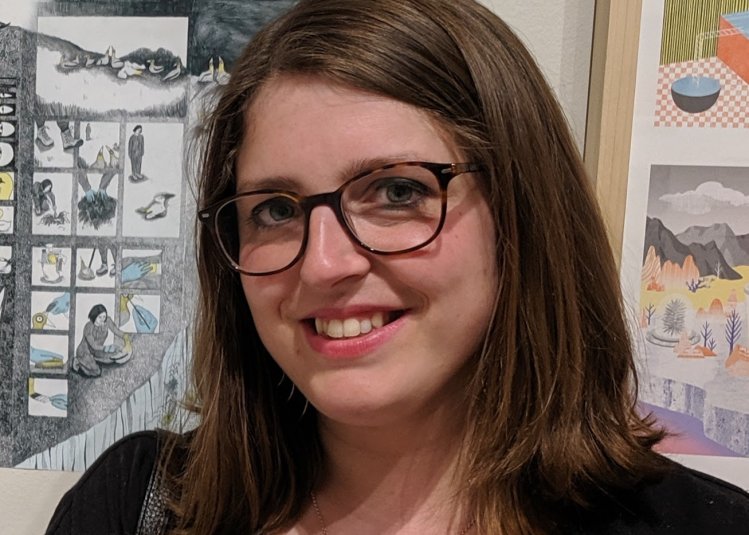
Tilly McKerrow
Senior Lecturer
Tilly is an Illustrator and art and design educator with over 10 years of experience teaching in FE ...
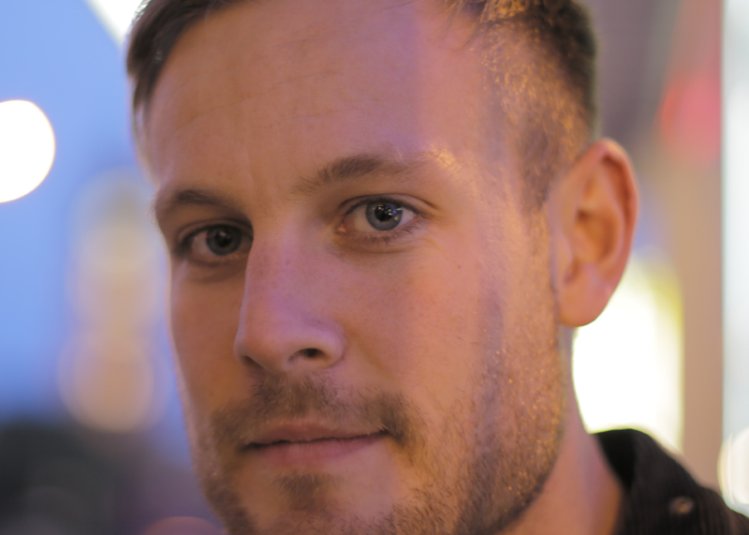
Hugh Frost
Course Leader, MA Illustration: Authorial Practice
Hugh is the Course leader for MA Illustration Authorial Practice at Falmouth. He is also an Editor /...
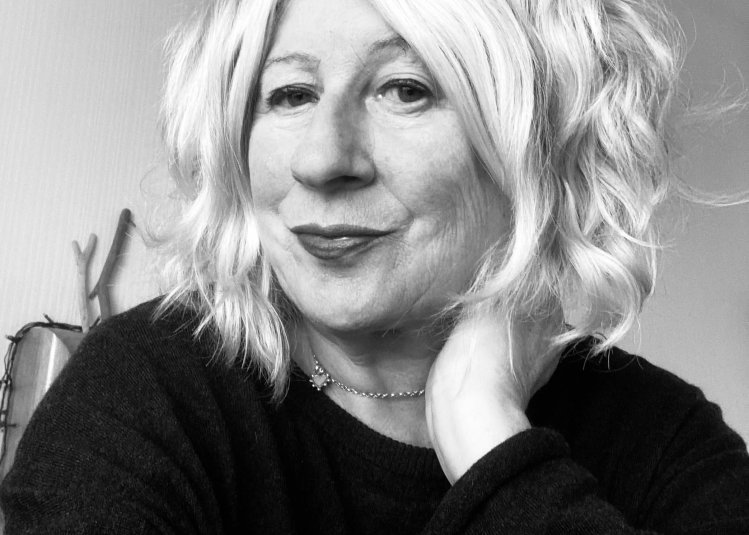
Linda Scott
Senior Lecturer
Linda joined Falmouth University in 2004, relocating from London where she worked as a freelance Ill...
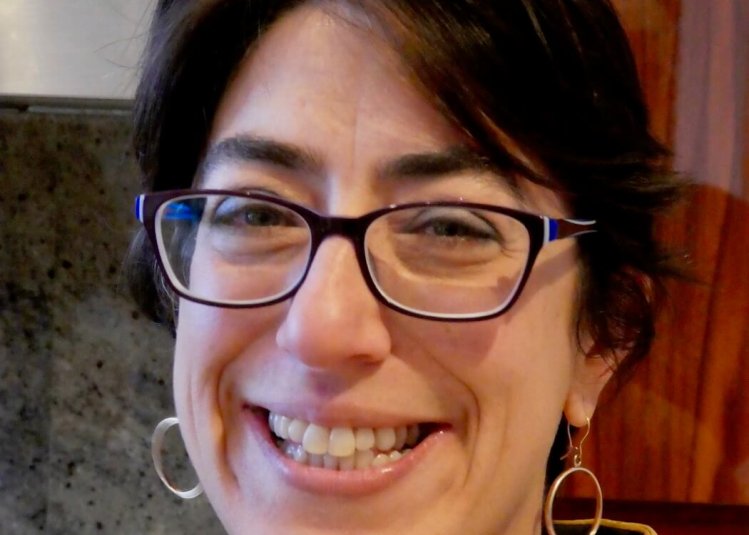
Dr Carolyn Shapiro
Associate Professor of Visual Culture
Carolyn Shapiro has been teaching at the Falmouth College of Art, University College Falmouth, and F...
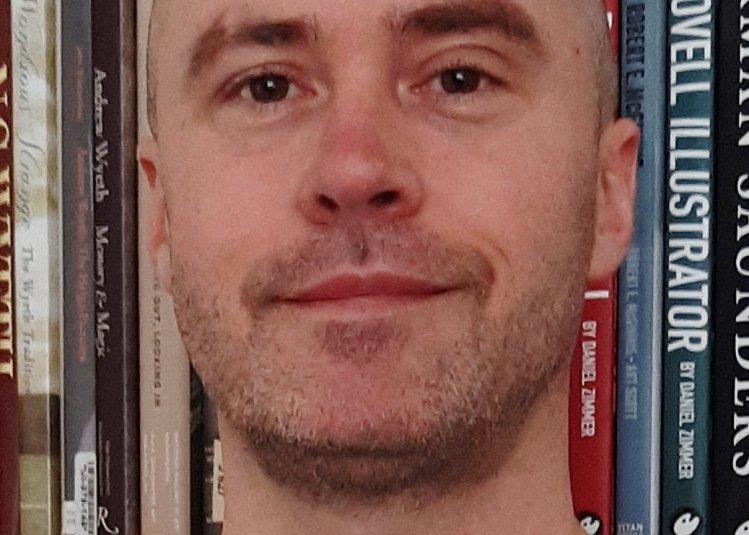
Christopher Odgers
Lecturer, Illustration BA(Hons)
After graduating from Falmouth University in 1999, Chris Odgers has gained over 20 years experience ...
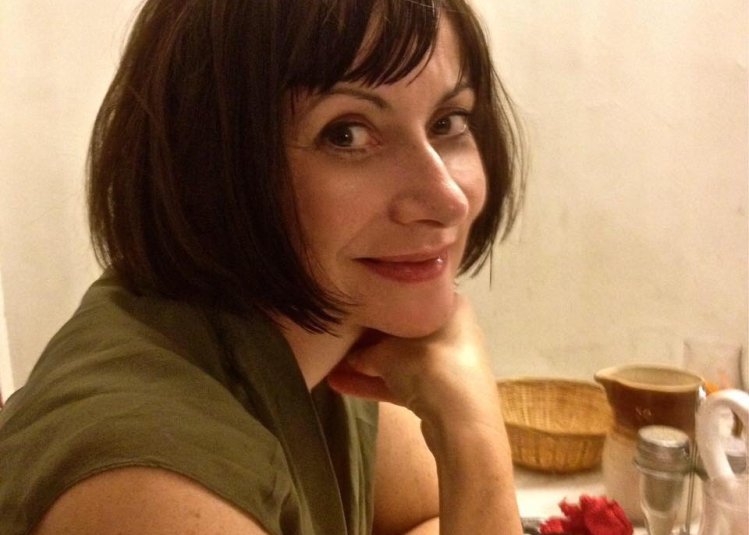
Julie Ann Monks
Lecturer
Since graduating from Kingston University in 1996, Julie worked as a freelance illustrator based in ...
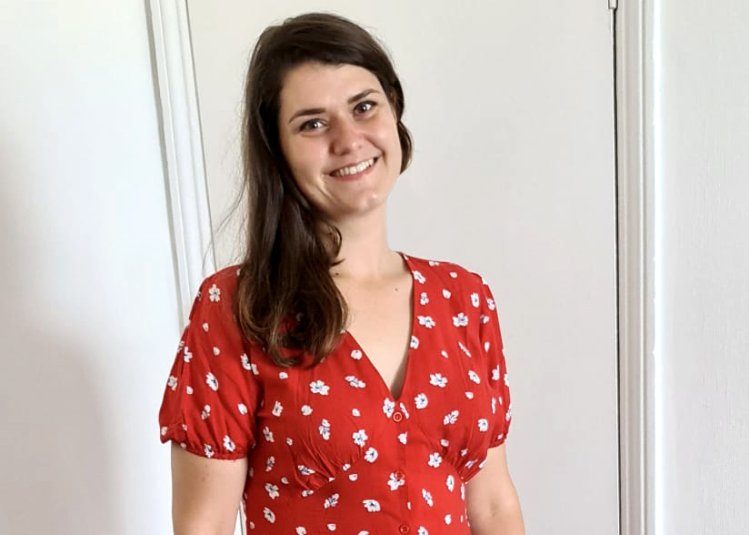
Georgie Bennett
Senior Lecturer, Illustration BA(Hons)
Georgie Bennett is a freelance illustrator, workshop facilitator, and lecturer. Clients include The ...
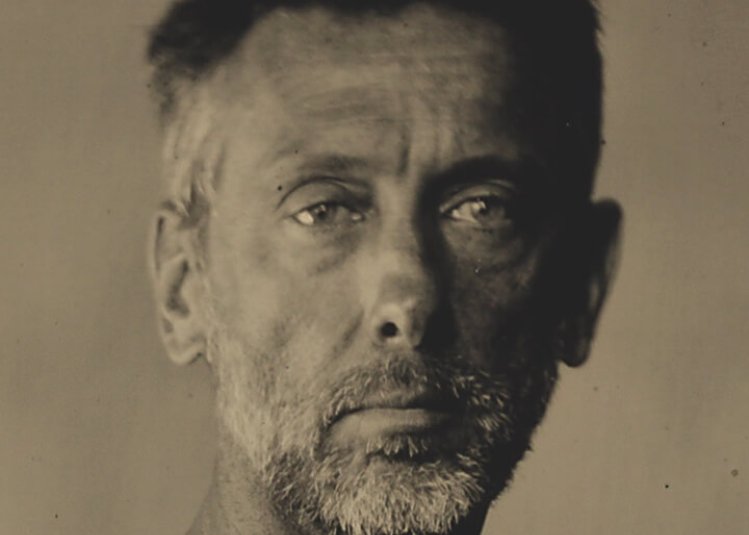
Graham Black
Lecturer
Graham graduated from Brighton Polytechnic with a BA(Hons) degree in Graphic Design and Illustration...
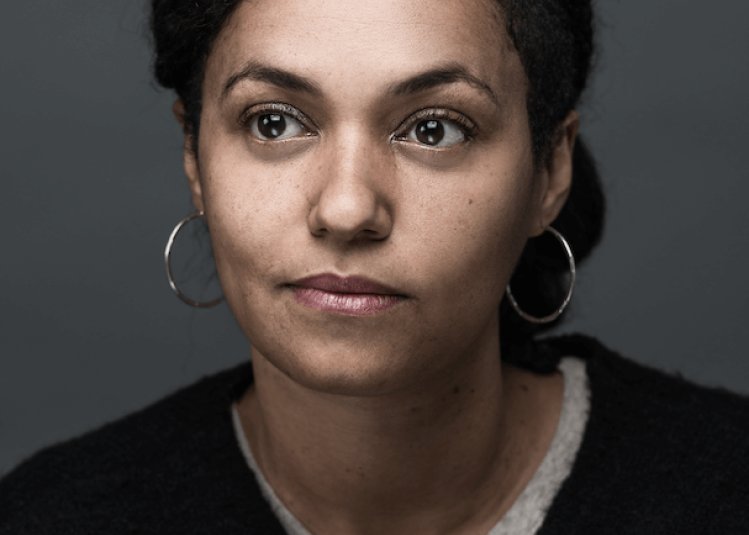
Maria Christoforidou
Lecturer
Maria Christoforidou is an artist, writer and researcher. Maria was born in Zambia, grew up in Greec...
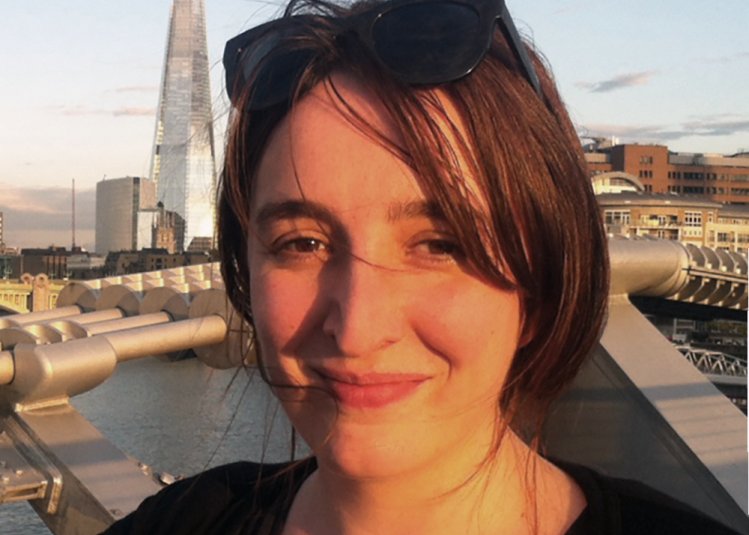
Cally Gibson
Senior Technician
Cally Gibson works at Falmouth University as a senior technician, solving software queries and teac...
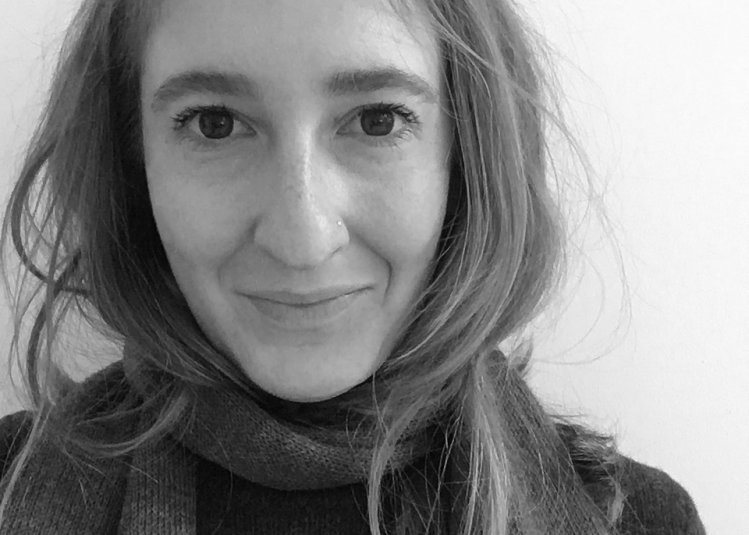
Emma Lewis
Associate Lecturer, Illustration BA(Hons)
Emma Lewis is an illustrator and writer from London, and creates work spanning both narrative and co...
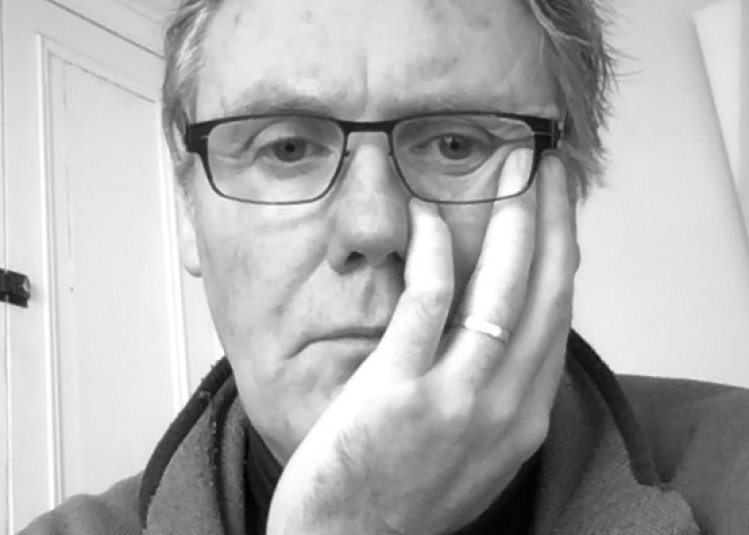
Laurence North
Senior Lecturer
I joined Falmouth University in 1991, I have taught across a number of courses including Art and Des...
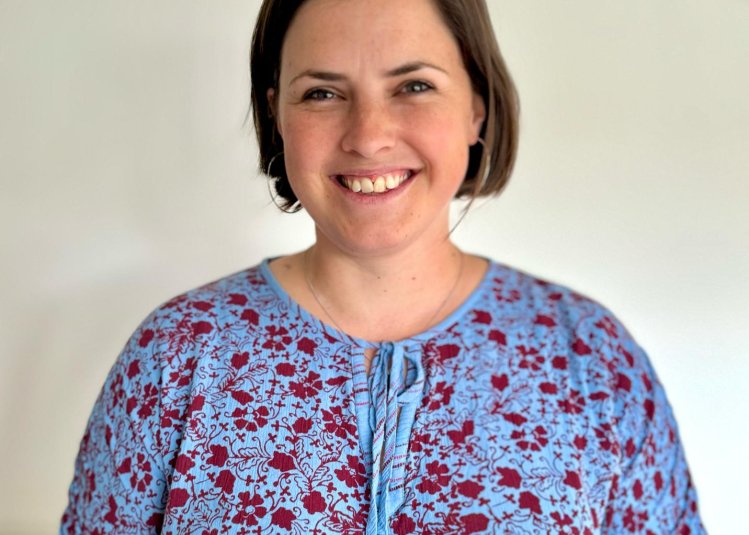
Elisa Cunningham
Lecturer, Illustration BA(Hons)
Elisa Cunningham is a freelance illustrator and lecturer. I have been commissioned in the areas of p...

Pete Williams
Module Tutor
Pete (Murgatroyd) Williams is a multi-media illustrator. His work has been commissioned by variou...
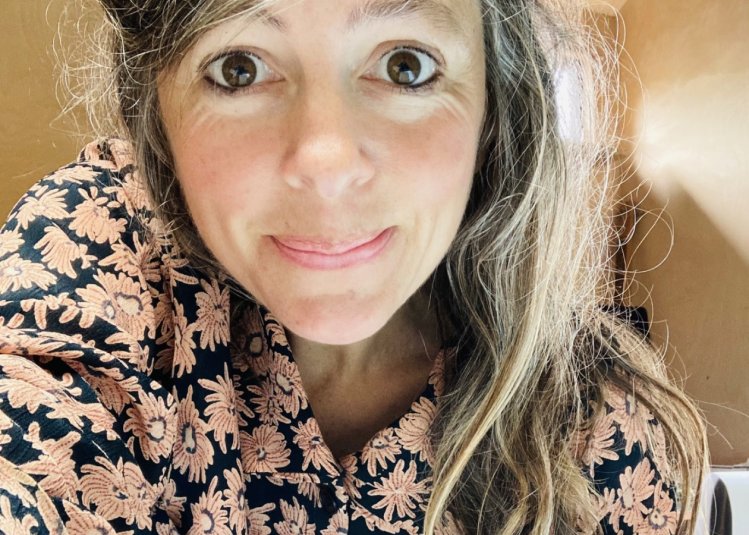
Rose Forshall
Lecturer, Illustration BA(Hons)
Rose Forshall is an illustrator, printmaker and lecturer teaching on the BA (Hons) illustration. She...
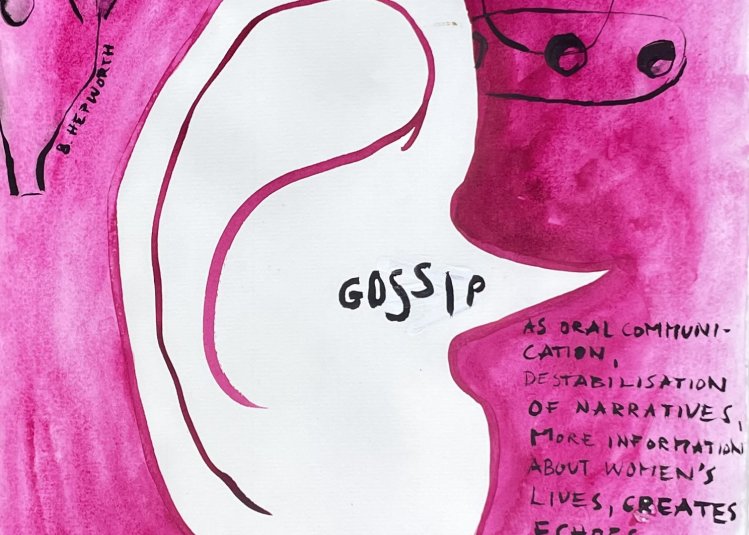
Dr Jeanie Sinclair
Lecturer, Illustration BA(Hons)
Profile image credit: Anna Westphal, 2025 Jeanie joined Falmouth University as a lecturer in Crit...
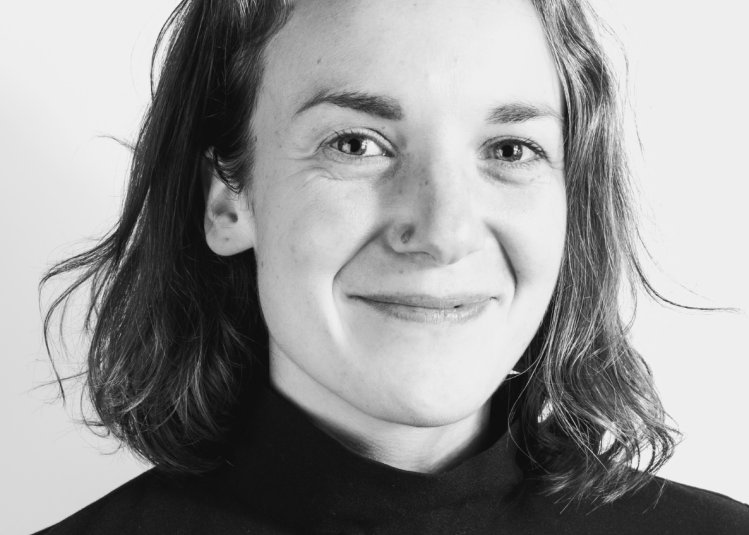
Phyllida Bluemel
Lecturer, Illustration BA(Hons)
Phyllida Bluemel is an interdisciplinary artist, writer, lecturer and book designer. She takes a cur...

Got a question about this course?
If you want to know more about the course structure, our application requirements or what our graduates have gone on to achieve, our friendly course team is here to help.
Chat to NigelStories from our community
Explore student projects, graduate successes, staff news and industry insights
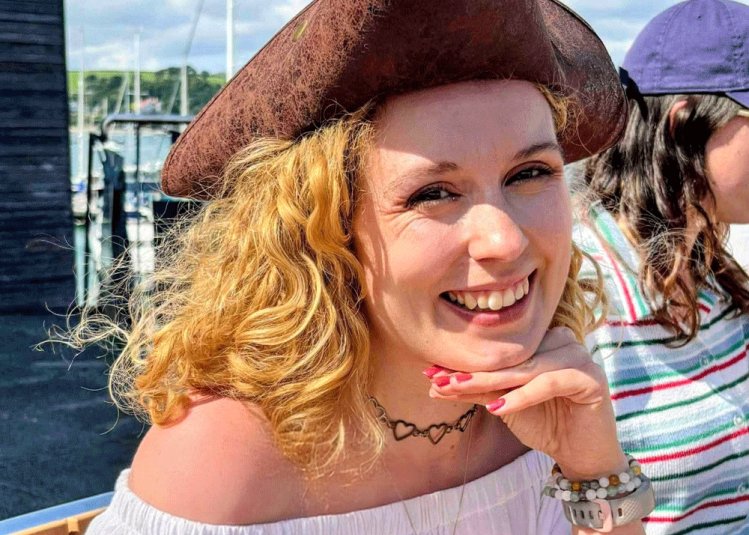
Illustration alumna releases children’s book with Pegasus Publishers
12 February 2026
For BA(Hons) Illustration alumna Caitlain Reavley, an idea for a children’s story that was conceiv...
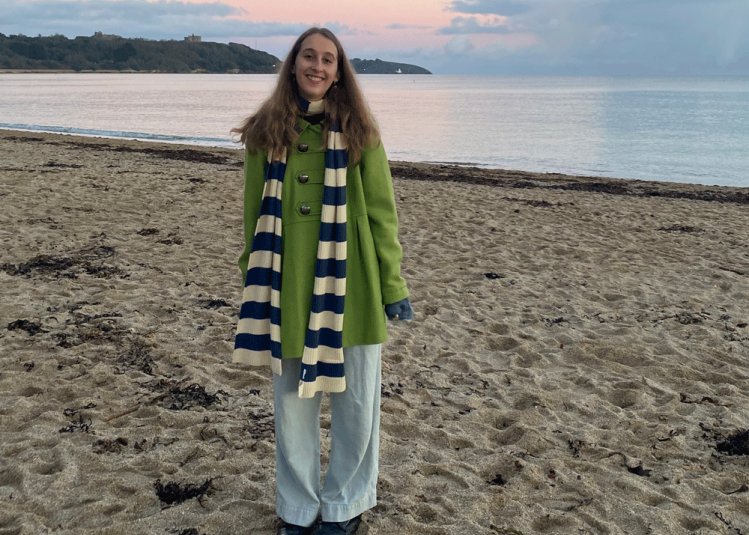
Illustration student runs 50-mile ultra marathon for women’s charity in Cornwall
09 February 2026
Isabelle Beckett, a BA(Hons) Illustration student at Falmouth, is currently raising funds in support...
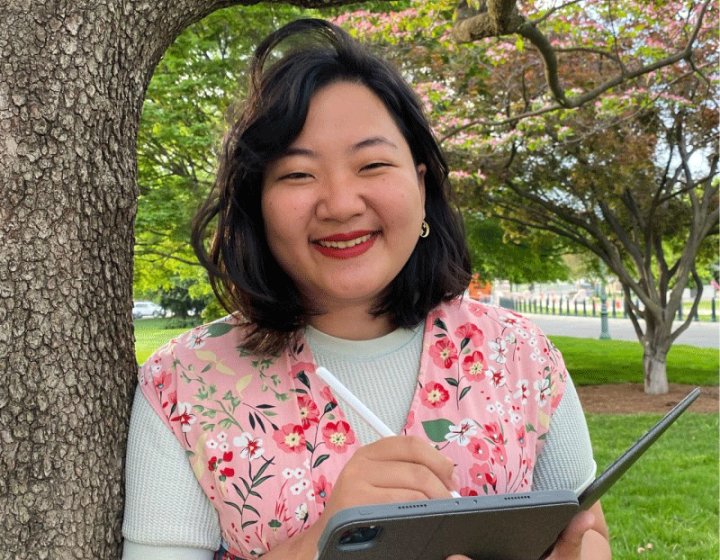
Online Illustration alumna on finding purpose through creativity
23 January 2026
For Dorcas Tang, studying Falmouth’s BA(Hons) Illustration (Online) course from Singapore offered ...

Work by Amelie Bailey Hall
Why I chose Falmouth's Illustration degree
07 January 2026
Illustration student, Amelie shares her experience of studying at Falmouth.
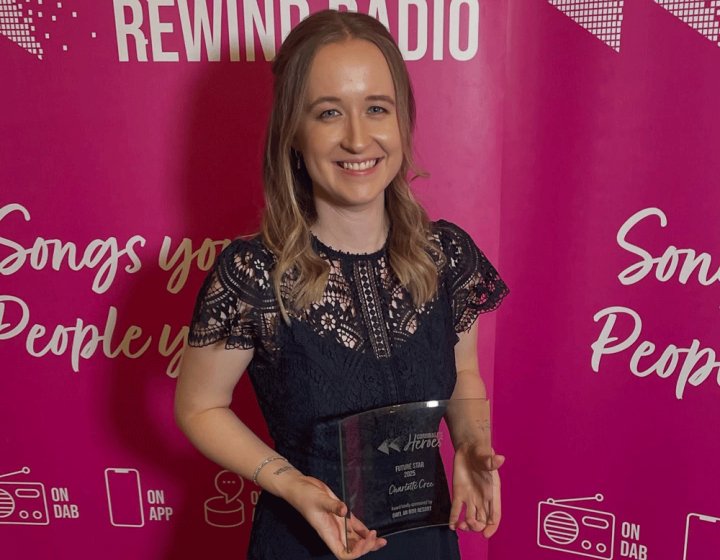
Illustration alumna receives Cornwall Heroes Award for creative work with mental health charities
05 December 2025
“Falmouth became a foundation for the career I am now building for myself,” says Charlotte Cree,...
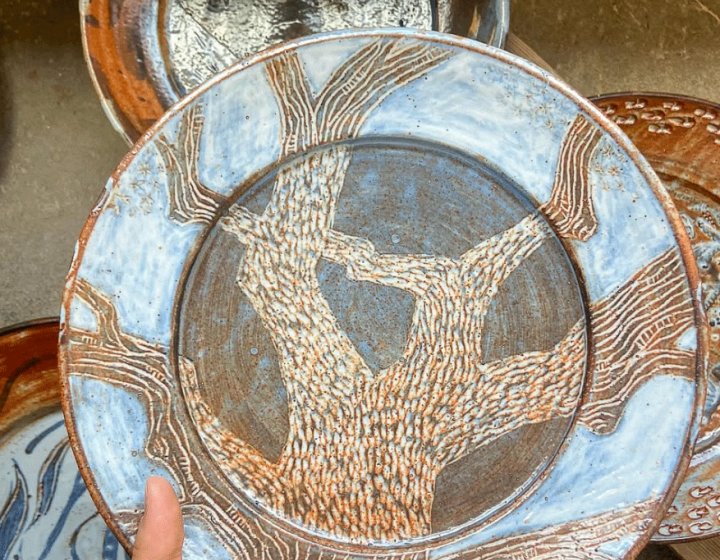
Illustration students collaborate with renowned Leach Pottery
14 November 2025
A collection of student-designed decorative plates made in collaboration with Leach Pottery is now o...
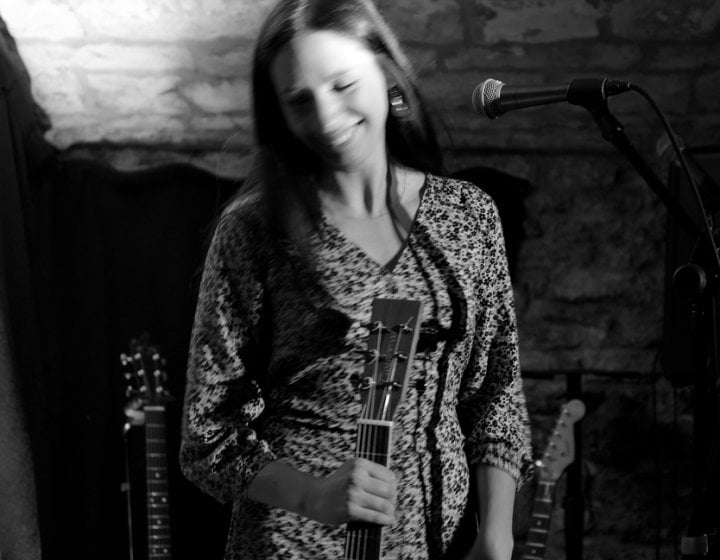
Grieving the Living: Music alumna Anna Roscoe releases debut EP
05 August 2025
For Music BA(Hons) alumna Anna Roscoe, songwriting has always been an essential way to process emoti...
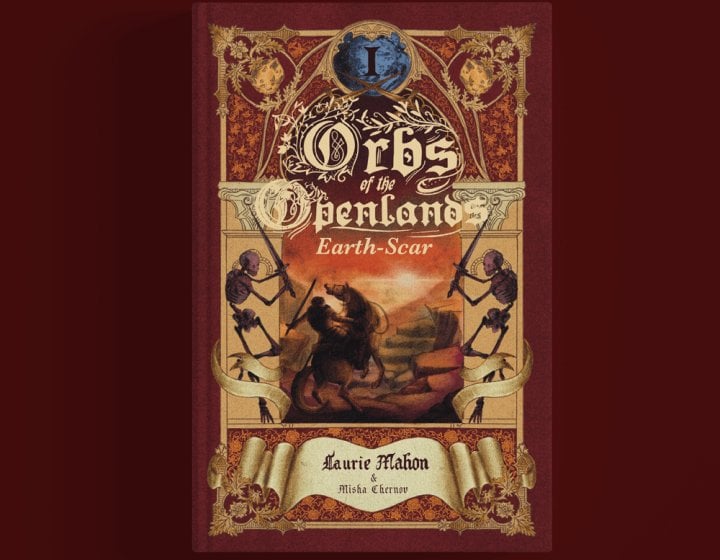
Falmouth alumnus illustrates six book fantasy series
29 July 2025
Misha Chernov has illustrated the cover art, map design, and internal artwork for a six book fantasy...
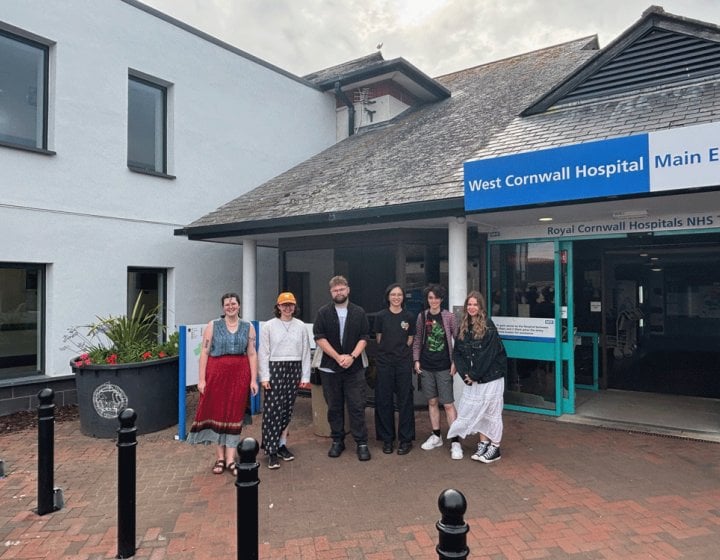
BA Illustration students create permanent artworks for West Cornwall Hospital
22 July 2025
Final year Illustration BA(Hons) students were set a brief to create uplifting and therapeutic artwo...
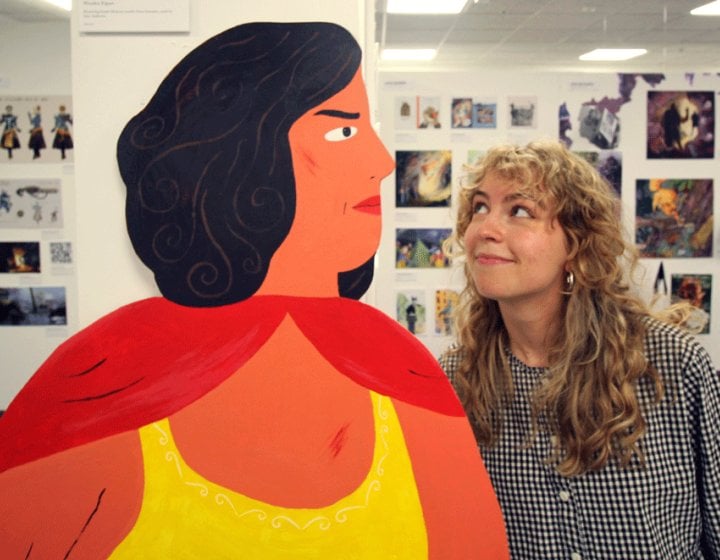
Falmouth graduate discusses their World Illustration Award longlisted project
24 June 2025
Selected from 4,700 entries, Amy Anderson is celebrating seeing the work she created as part of her ...
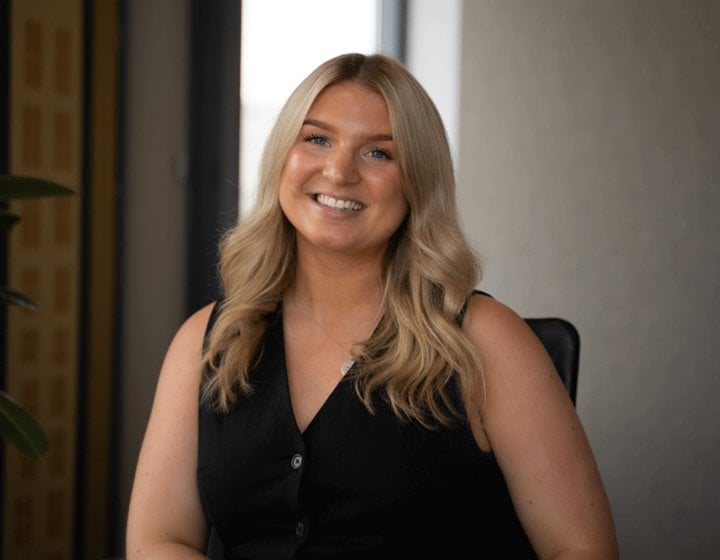
Falmouth student wins global entertainment award while interning at Disney+
17 June 2025
After building vital creative skills in the first two years of her Falmouth degree, from confidence ...
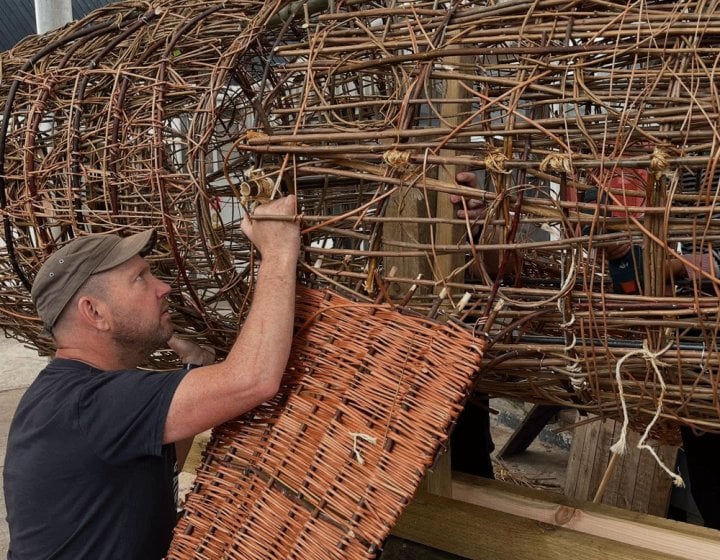
Falmouth lecturer leads life-size ‘Basket Shark’ project to raise awareness of sea pollution
10 June 2025
To mark World Ocean Day, staff and students from Falmouth University paraded a hand-crafted, life-si...
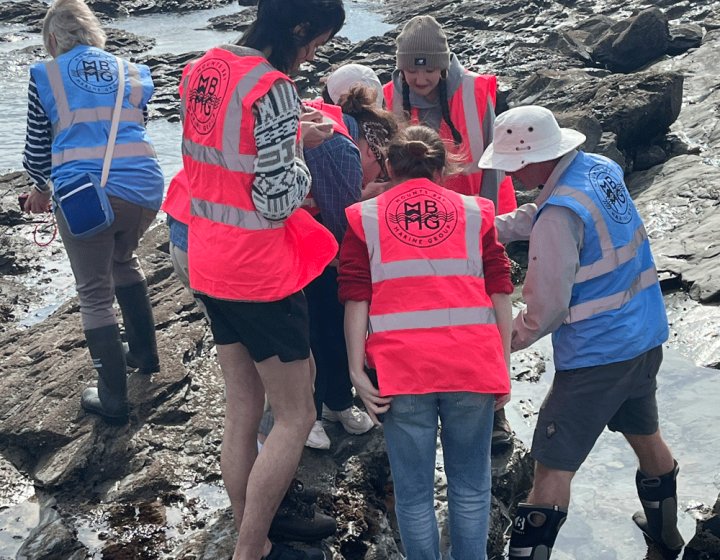
Illustration students collaborate with Mounts Bay Marine Group and Newlyn Art Gallery to lead creative workshops for children
03 June 2025
Second year illustration students recently hosted a series of workshops for local primary school chi...
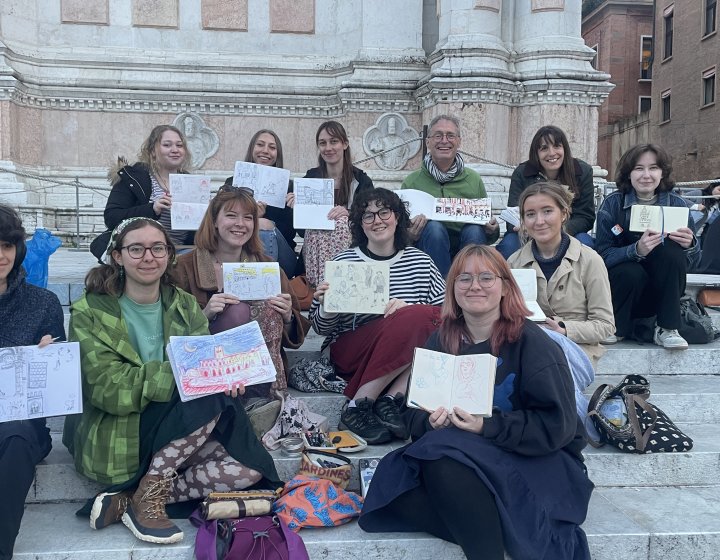
Credit: Jessica Jenkins
Illustration students explore Bologna Children’s Book Fair
16 April 2025
Students on Falmouth’s undergraduate Illustration degrees came together earlier this month at Bolo...
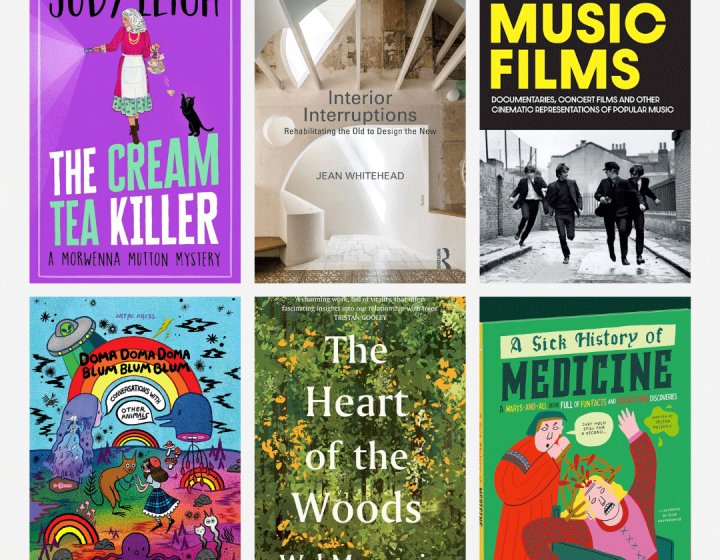
World Book Day: Celebrating the latest books created by Falmouth alumni and lecturers
06 March 2025
Whether it be a cosy mystery, an exploration of dark romance, an LGBTQ+ fairytale, or a study on the...
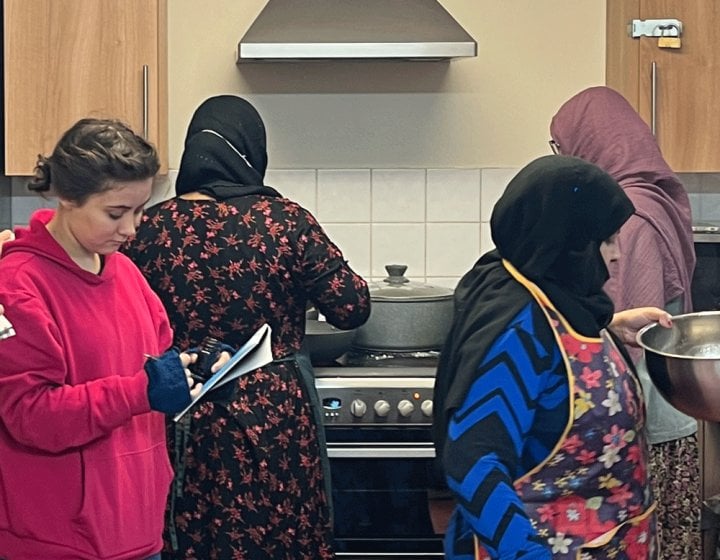
Second year Illustration students visit Tower Hamlets in London
17 January 2025
Five second year Illustration students travelled to London last month to meet Elaine, Sajna, and Sh...
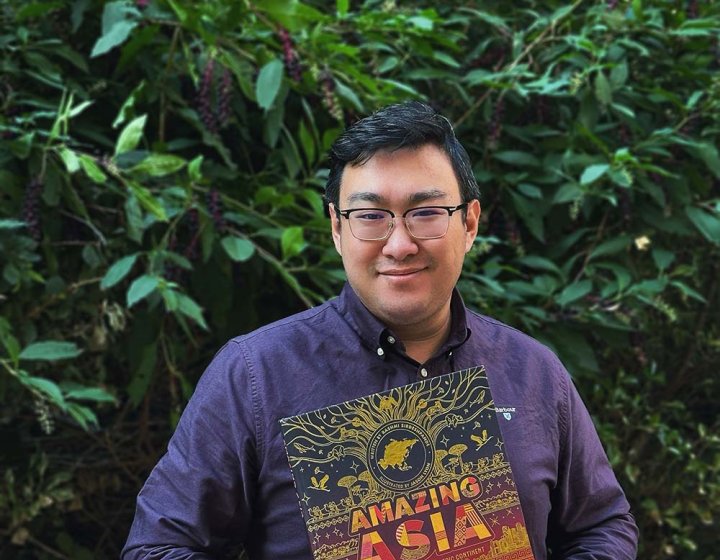
Falmouth Graduate Illustrates Stunning Children's Encyclopaedia, Amazing Asia
18 October 2024
Illustration BA graduate Jason Lyon has co-produced a beautifully crafted children’s encyclopaedia...
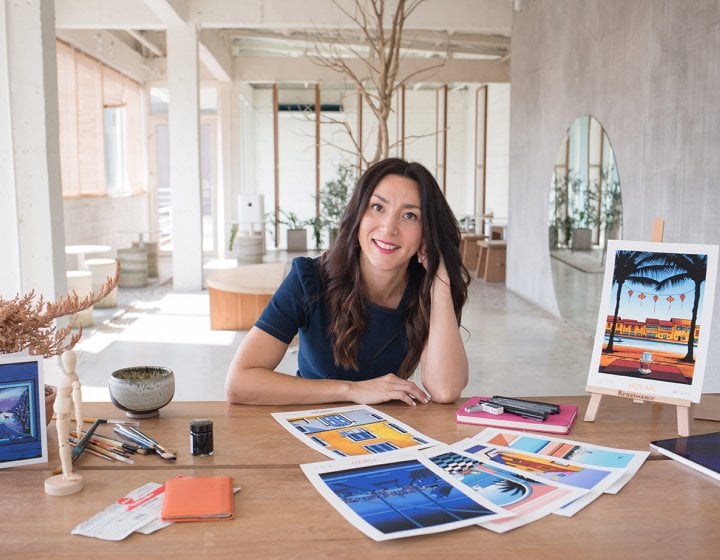
Graduate Spotlight: illustrator and digital nomad Molly Maine
26 September 2024
Meet Molly Maine, a BA Illustration graduate whose time studying at Falmouth and taking part in a St...
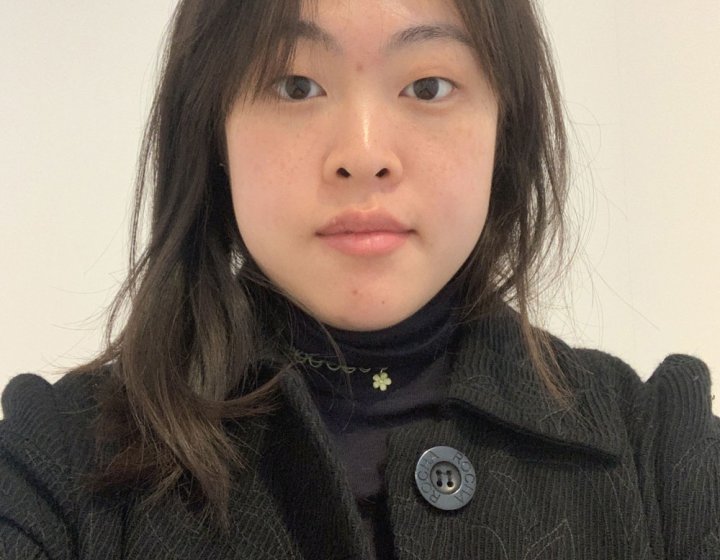
Illustration: Authorial Practice MA student selected for New Contemporaries
05 August 2024
Master’s student Dageong Han has been selected as a featured artist in a renowned organisation tha...
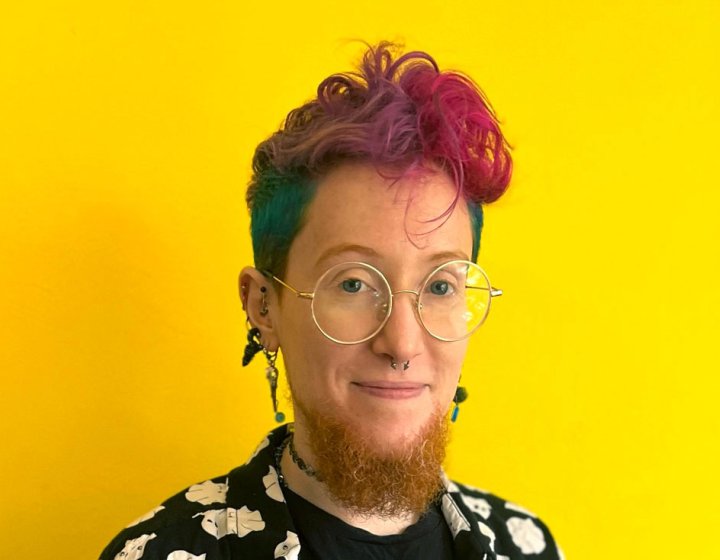
Graduate Spotlight: author-illustrator Dante Gabriel Hookey
17 July 2024
For Dante Gabriel Hookey there is nothing more rewarding than a personal project. Channeling their e...
Careers
Our Illustration graduates have worked as:
- Freelance illustrators working in editorial, advertising, publishing, fashion and narrative across a broad range of national and international clients, including the BBC, Google, The Royal Mail, The Guardian, Penguin, The New Yorker, Vodafone, Walker Books and The Wall Street Journal
- Designers, art directors and animators in companies such as the British Museum, Dorling Kindersley Publishing, Goodgame Studios, Nickelodeon, The Telegraph and Vault49 Design
- App and web designers
- Film and TV graphic designers
- Concept and character artists and visualisers
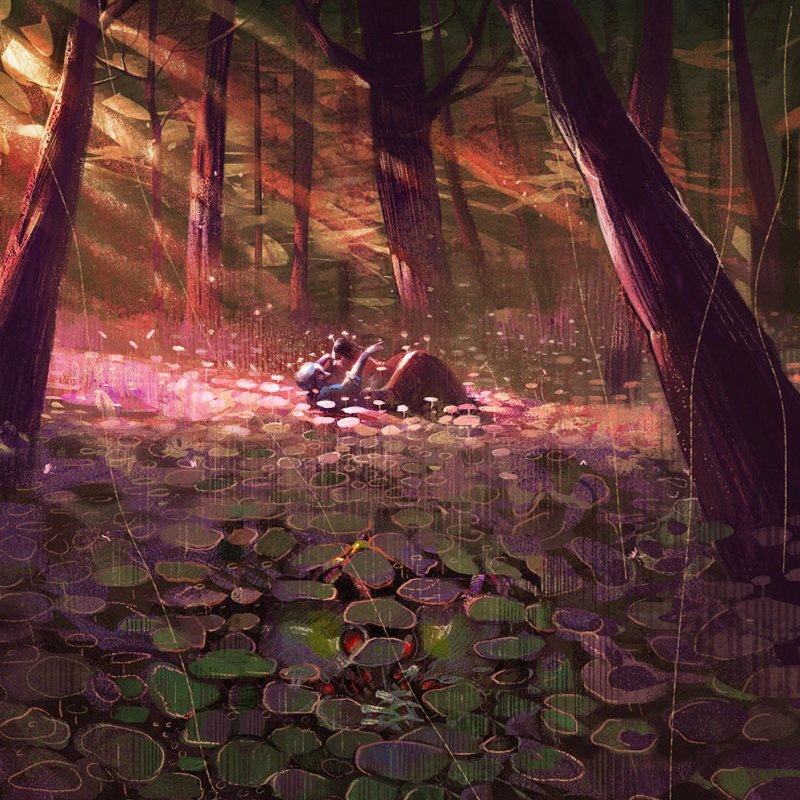
An Art degree is an opportunity to channel your creative flair by exploring a range of media techniques to refine your practice.
How to apply
Ready to apply for 2026?
You can apply for our undergraduate degrees via UCAS. You'll need our university UCAS code (F33) as well as your course code (which you'll find on your course page) for your application.
Applying as an international student?
There are a number of different ways to apply to study at Falmouth as an international student. Find out how you can become part of our creative community.
| Course route | UCAS code |
|---|---|
| Illustration BA(Hons) three year degree | W221 |
| Illustration BA(Hons) with Integrated Foundation Year | FY12 |
| Illustration BA(Hons) with professional placement | PY20 |

Application advice & interview information
Go to ToolkitFor starting your studies in 2026
UK applications: 14 January 2026 (for equal consideration)
Applications after the 14 January will be considered on a first-come, first-served as long as there are places available. Apply for this course now.
For starting your studies in 2027
UK applications: 13 January 2027 (for equal consideration)
International fee payers
International fee payers can apply throughout the year. But we recommend applying as early as possible, to make time for visa and travel arrangements.
We consider all applications on their own individual merit and potential.
Our diverse community is creative, innovative and entrepreneurial. We recognise that these qualities aren’t always shown in academic grades alone. That’s why, while many of our applicants achieve high academic grades, we also welcome those who can demonstrate their potential through an exceptional portfolio or performance.
We welcome applications from all subject backgrounds, whether you’ve specialised in STEM, the arts or humanities. Find out more about our Entry Requirements here.
Course routes & entry requirements
BA/BSc(Hons) three year degree: minimum 64 UCAS Tariff points
BA/BSc(Hons) four year degree with professional placement: minimum 64 UCAS Tariff points
BA/BSc(Hons) four year degree with Integrated Foundation Year: minimum 32 UCAS Tariff points
At Falmouth, we'll consider the equivalency of your specific qualifications against our entry requirements and support you through your application journey.
View our International Entry Requirements
Language requirements
For applicants whose first language is English we require you to have or be working towards GCSE English Language Grade 4 (C), or equivalent.
If English is not your first language you will need to meet the same standard which is equivalent to the IELTS Academic 6.0 overall score, with at least 5.5 in Reading, Writing, Speaking and Listening. We accept a range of in country equivalencies and approved tests.
If you need a student visa to study in the UK, you may need to take a recognised language test. You can read our English Language Requirements for more information.
What we're looking for
We want someone who:
- Has visual problem-solving skills, with a specific focus on generating ideas.
- Shows development of visual language in drawing, life drawing, media, mark-making experimentation, reflective analysis and finished pieces.
- Has a good contextual understanding of what illustration is.
- Is confident in their abilities and prepared for the challenges of higher education.
- Can communicate effectively.
- Has a theoretical understanding of visual arts issues.
Fees, costs & funding
Tuition fees
| Annual tuition fee | Student |
|---|---|
| £9,790 per year | Full-time UK |
| £19,950 per year | Full-time EU/international |
| £1,955 per professional placement year | Full-time UK and EU/international |
| £9,790 per Integrated Foundation Year | Full-time UK |
| £19,950 per Integrated Foundation Year | Full-time EU/international |
| Annual tuition fee | Student |
|---|---|
| £9,535 per year | Full-time UK |
| £17,950 per year | Full-time EU/international |
| £1,905 per professional placement year | Full-time UK and EU/international |
| £9,535 per Integrated Foundation Year | Full-time UK |
| £17,950 per Integrated Foundation Year | Full-time EU/international |
Tuition fees for September 2027 will be confirmed in summer 2026.
Tuition fees are set annually and are subject to review each year. The University may therefore raise tuition fees in the second or subsequent years of a course, in line with inflation and/or the maximum permitted by law or Government policy. Students will be notified of any changes as soon as possible.
The figures above don't include accommodation and living costs
Typical course costs
- £100-£150 approx. - Recurring annual costs (materials)
- £100 - £200 approx. - Optional study trips
- £30 approx. - Degree Show/New Designers drop banner
If you need to bring equipment or materials with you, these will be outlined in your Welcome Letter.
As a new student to BA(Hons) Illustration it is expected that you start to build your own personal stockpile of materials and media to expand and evolve your visual language. In the early phases of the curriculum, you will explore many different approaches to image-making. Therefore, it would be wise to have access to as broad a range of media as possible.
Below is a list of essential materials that you will need at the start of your course (you will require further sketchbooks and materials as you progress through your degree). There is a well-stocked art materials shop on campus, so don’t feel that you need to acquire everything prior to induction week:
- At least two A4 or A3 sketchbooks, or equivalent loose sheets of paper for Visual Problem-solving. (£2.20 x2)
- Two A4 notebooks for Digital Skills and Critical Studies. (£1.70 x2)
- Gouache paint (Windsor and Newton Designers Gouache is the best to use) Suggested Colours (£5 each):
Large White 37ml (essential), Black 14ml (essential), Ultramarine Blue 14ml (essential), Burnt Umber 14ml (essential), Windsor and Newton Set of basic colours (Red, blue, Green, yellow, violet): £25
- A variety of materials and mediums that will facilitate a broad range of experiments and approaches to media, process, and aesthetics (here are some suggestions…): acrylic paint (particularly black and white), a paint palette with wells (preferably either ceramic / China), oil pastels, chalk pastels, conte crayons, graphite pencils (varying weights), pencil sharpener, eraser, compressed charcoal, black Indian ink and coloured inks, masking tape, PVA glue and glue stick, A2 sheets of paper for life drawing, 2 X A4 sheets of acetate for printmaking, small tube of black printmaking ink, scissors, scalpel and blades or craft knife, steel ruler, cutting mat (A4 minimum size).
Additional typical course costs for Integrated Foundation Year pathway
- £250 for materials
- A laptop/desktop computer
- Adobe Creative Suite
To engage in the digital learning activity, although you will be able to access IT suites on campus, you will benefit from a laptop to access the platforms and tools we use. Depending on your subject, you may need a specific type of computer. If you're unsure about what you might need, please contact our course advisors.
Typical course material costs:
£250 - Recurring annual costs may include: art/creative materials and costs towards your end of year show exhibition and can vary depending on material choices and specialism. It is strongly advised that you have a personal laptop, and preferable for you to have access to the Adobe Creative Suite which includes Photoshop, Illustrator and InDesign software (the monthly student subscription price is heavily discounted).
Study trips:
There are several IFY field trips, and you will need to allow for some costs for student contributions towards coach hire and exhibition entry. Total annual cost of day trips approximately £60.
If you want to attend the planned IFY week-long residential trip to London in the Spring of 2026 then you will need to plan for a £100 deposit payment shortly after arriving on the course, to secure a place, and to budget for a total trip cost of approx. £400 - to be paid in instalments.
Funding
For information about funding available, please visit our student funding pages.
Ask a student
What better way to find out about life at Falmouth University than by asking our current students?
From course details and academic support, to the social scene and settling in, our students are ready and available to answer any questions you might have. Simply set up your account, send them a question and they'll get back to you within 24 hours.
Similar courses
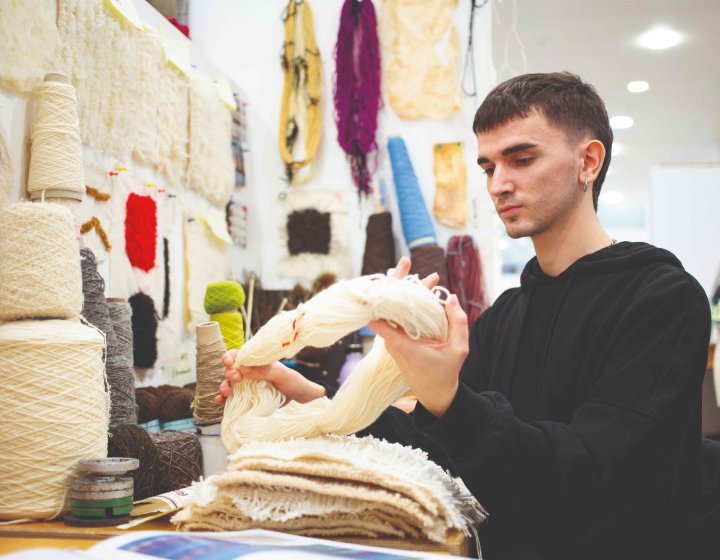
Textile Design BA(Hons)
On our textile design degree, you’ll be part of a vibrant, supportive community of multidisciplina...
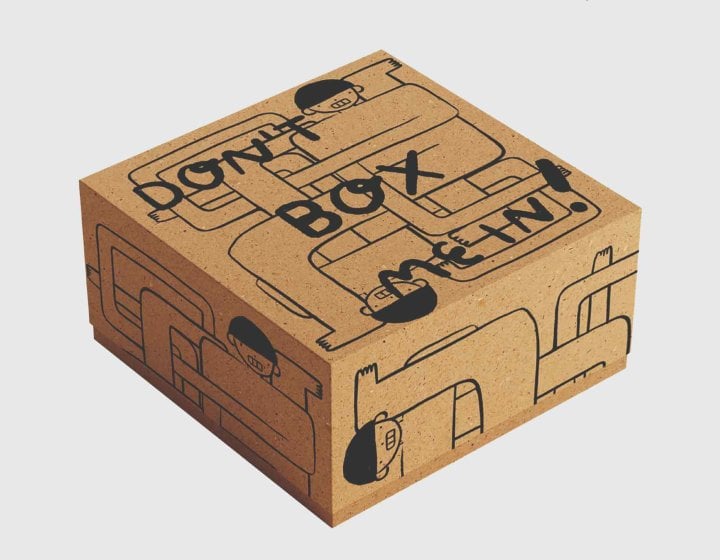
Visual Communication BA(Hons) (Online)
Get ahead in the vibrant, ever-evolving field of visual communications with this exciting online cou...
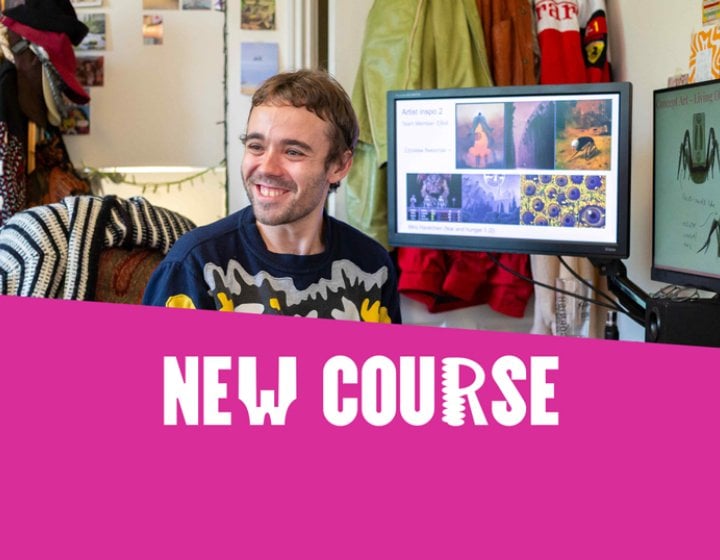
Game Development BA(Hons) (Online)
On this online Game Development degree, you’ll establish your specialism within the field, gaining...
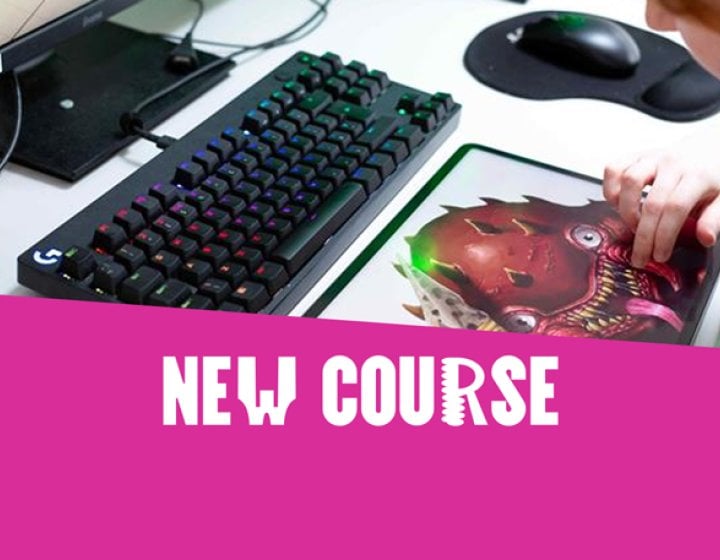
Game Art BA(Hons) (Online)
On this online Game Art degree, you’ll develop the creative and technical skills needed to thrive ...
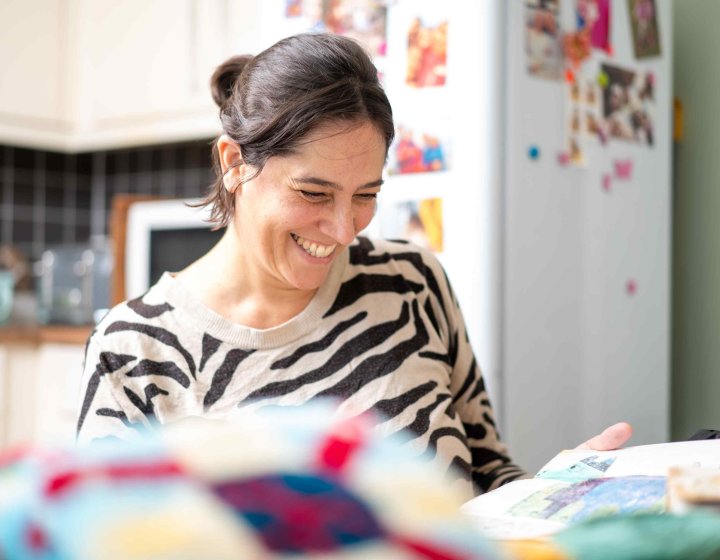
Integrated Master’s Combined Arts MA (Online)
This Combined Arts online degree gives you the opportunity to explore a wide range of creative disci...

Illustration BA(Hons) (Online)
Gain the professional practice and entrepreneurial skills needed to turn your talent into a successf...
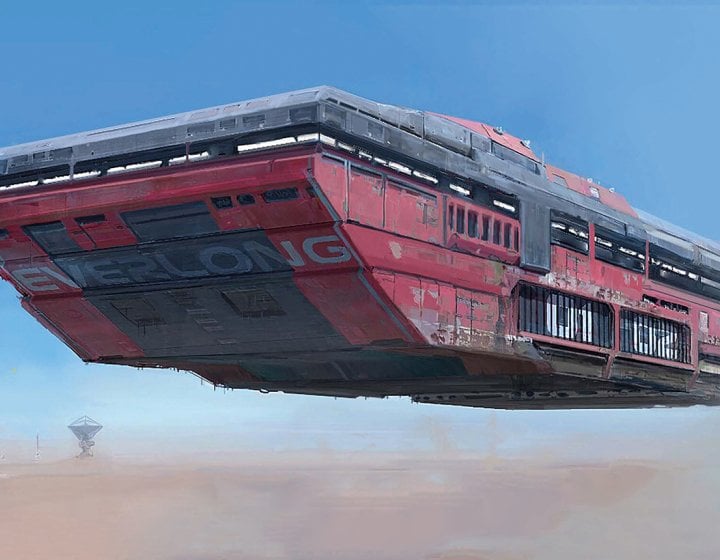
Game Art BA(Hons)
Work in multi-skilled collaborative teams and graduate as a confident, industry-ready game artist. ...
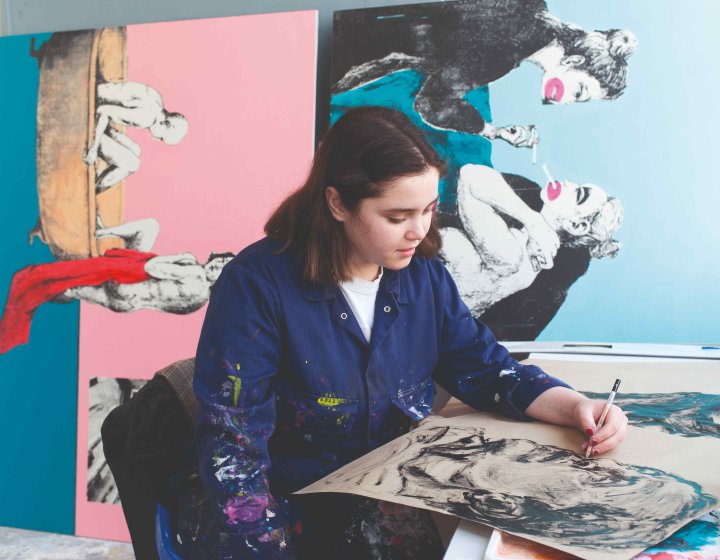
Fine Art BA(Hons)
This highly-respected course aims to support the development of your practice as it evolves over the...
Open Days and events
From visiting campus to online application advice, get all the information you need about joining our creative community.
Find an event

